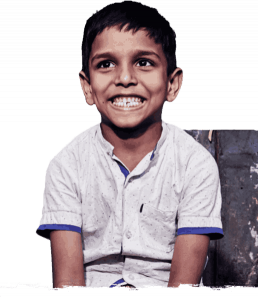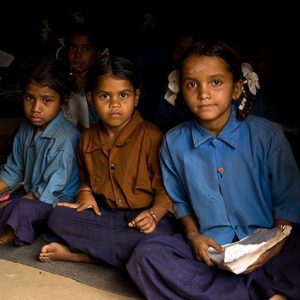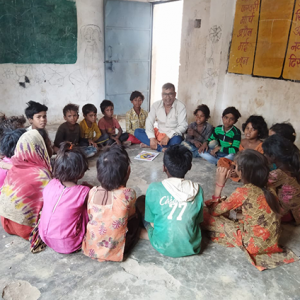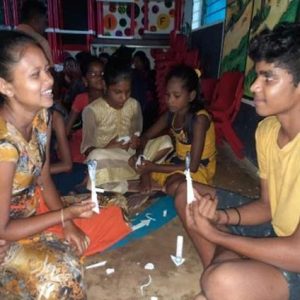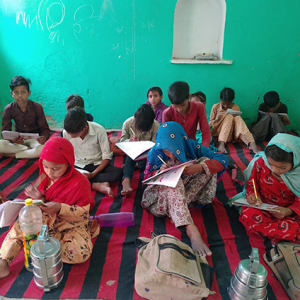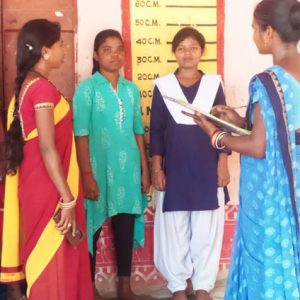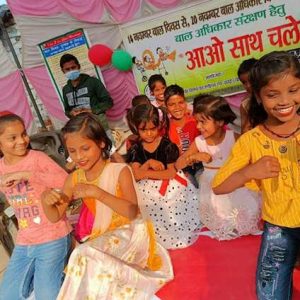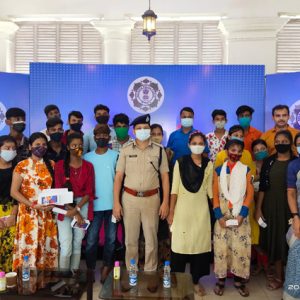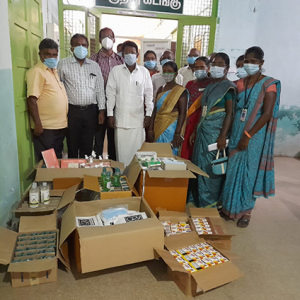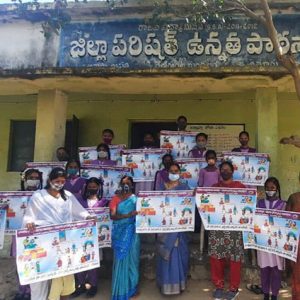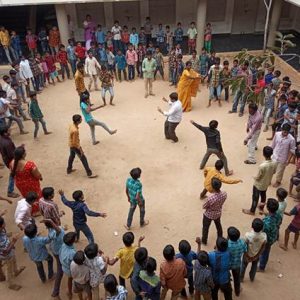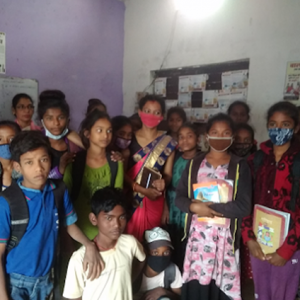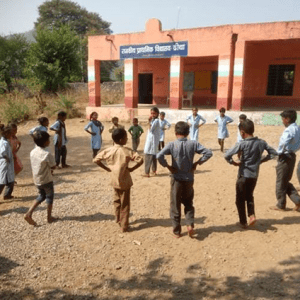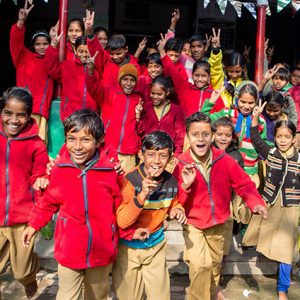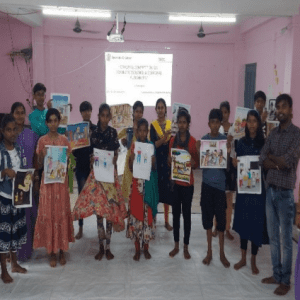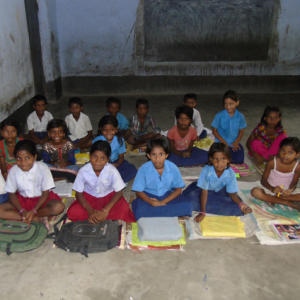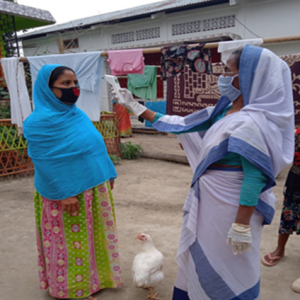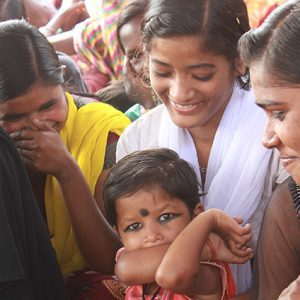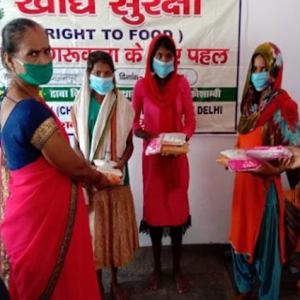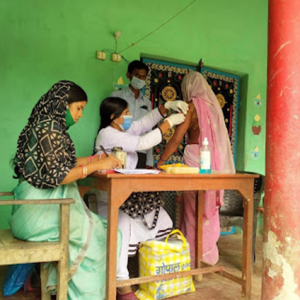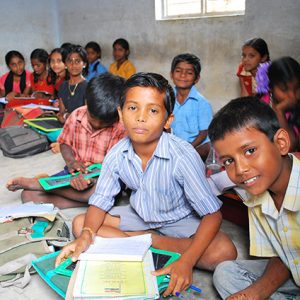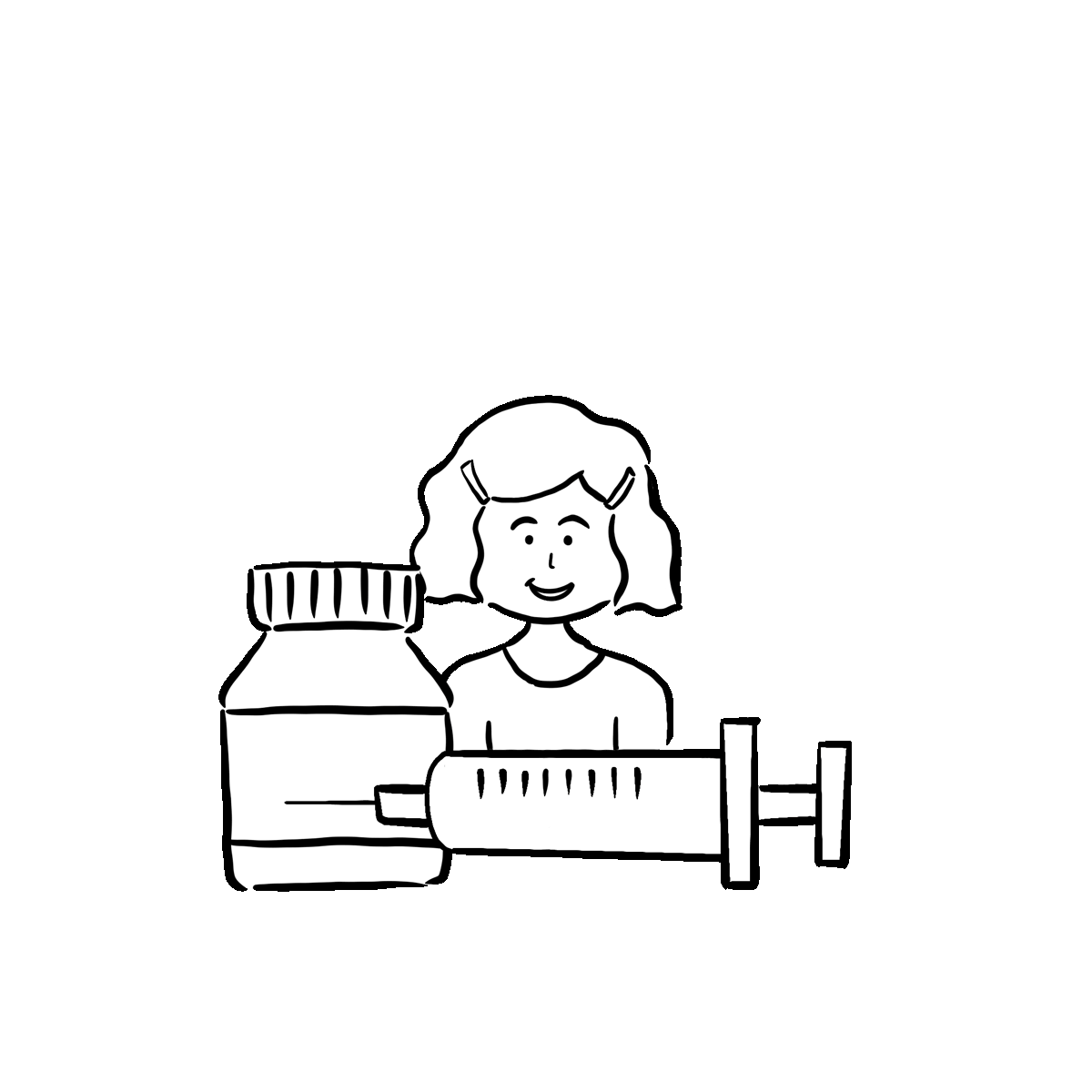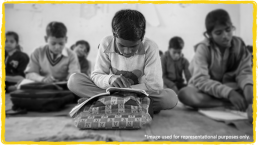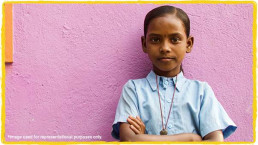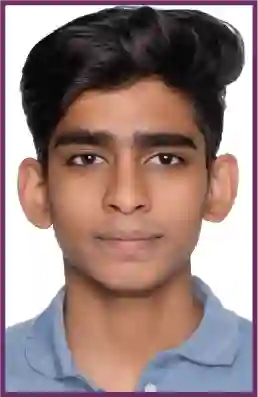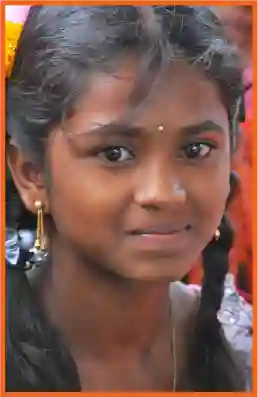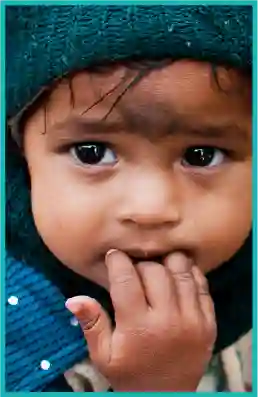There is nothing more precious than a child’s smile. Since 2004, CRY America has helped create more than Children impacted overall Children 6-18 years in schools 0-1 years children fully immunized Public schools activated Villages freed from child labor Children's collectives formed/strengthened Children mainstreamed into schools Rescued children (labor or trafficked) mainstreamed in formal education There is nothing more precious than a child’s smile. Since 2004, CRY America has helped create more than
There is nothing more precious than a child’s smile. Since 2004, CRY America has helped create more than CRY America provides high-engagement philanthropy to Projects focused on children’s development and rights in India. The Projects we support work at the grassroots-level to restore basic rights to children. We select them on the basis of their track record, the issues they work with and their impact on the communities. We support them through funding, training and capacity building. We have effective systems in place for selecting, planning, monitoring & evaluating grantees. Projects are carefully selected as per defined Selection Criteria: CRY America aims at a just world, especially through Project funding, in which all children – regardless of gender, class, caste, faith, color, race, ethnicity, physical and mental ability etc – have equal opportunities to develop to their full potential and realize their dreams. Supported Projects are provided with need based financial support. Project Budgets are developed on an annual basis and closely linked to the program plans & expected outcomes. Our capacity building and enabling role is an integral part of our “child rights” model of change. Capacity building efforts includes program development & trainings for the project staff, teachers & community workers in areas of need such as education, healthcare, child labor, child marriage etc; networking support, perspective building on child rights & financial management. CRY America provides Projects with needed trainings and builds their capacity to achieve their goals: Networking, Research and Policy Influencing – our partner CRY India also works with larger networks of NGO’s at the State and national level which help facilitate the transfer of learning, build solidarity between partner organizations and influence policy to positively impact the situation of Indian children. We believe that community mobilization and engagement is the most effective long-term solution to the multiple causes of poverty, deprivation and exploitation that constrain the rights of India’s children. We enable supported Projects to focus on key activities: Project outcomes are stringently monitored by CRY staff, through field visits and regular consultations. Read more. Partners also send across reports on a quarterly basis. In addition, an annual evaluation is conducted for each project. Financial risk management and audits are also done on a regular basis to ensure diligence and satisfactory utilisation of funds. 16-year-old Raju Kumar should have been poring over his schoolbooks. Instead, he was nearly a thousand miles from his home in rural Bihar, cutting diamonds in a dismal, unventilated factory in Surat,… In the 2016 blockbuster Hindi film “Dangal”, Amir Khan plays a former champion wrestler who trains his daughters to eventually compete – and triumph – in the Commonwealth games. Based on the true… Your contribution to CRY America will enable children to complete their education, get proper nutrition and healthcare and stay protected from abuse and exploitation. We cannot do the work that we do without your support and it will need each and every one of us to come together to ensure happier childhoods for children everywhere! All donations to CRY America are tax deductible. Every child deserves a safe, healthy, and joyful childhood. CRY America’s projects work across education, girl child empowerment, protection from child labor and child marriage, and health & nutrition to ensure every child can grow, learn, and thrive. Learn more about the challenges children face and how you can help. According to the United Nations Convention on the Rights of the Child (UNCRC), all children have fundamental rights which must be And yet, children continue to battle some of the worst circumstances in the world. children in India, between 6-18 years of age, do not go to school (UDISE 2016-17) child labourers in India go to work instead of school (Census 2011) child brides in the world is from India (UNICEF 2014) child deaths in India, below the age of 5, are caused by malnutrition (UNICEF 2019) children in India do not receive complete immunization (NFHS 4 2016) increase in crimes against children in India between 2008-2018 (NCRB 2018) children live in poverty in the U.S. (U.S. Census Bureau 2018) children in the U.S. live in food insecure households (USDA 2018) cases of child abuse are reported every year in the U.S. (Safe Horizons 2015) children in India, between 6-18 years of age, do not go to school (UDISE 2016-17) child labourers in India go to work instead of school (Census 2011) child brides in the world is from India (UNICEF 2014) child deaths in India, below the age of 5, are caused by malnutrition (UNICEF 2019) cases of child abuse are reported every year in the U.S. (Safe Horizons 2015) children in India do not receive complete immunization (NFHS 4 2016) increase in crimes against children in India between 2008-2018 (NCRB 2018) children live in poverty in the U.S. (U.S. Census Bureau 2018) children in the U.S. live in food insecure households (USDA 2018) CRY America works to ensure that underserved children are able to access and exercise their fundamental rights and so, we work on 4 key focus areas: We believe that every child should be able to go to school and complete their education without any discrimination based on gender, caste or socio-economic status. To this end, our education programs focus on: Early Childhood Education: Helping children between 0 to 3 years develop their learning abilities to aid their intellectual and cognitive development. School Readiness: Enabling children between 3 to 6 years get access to pre-schooling through Anganwadis to help develop the knowledge and skills that will equip them to complete their schooling. Learning Outcomes: Ensuring that children between 6 to 18 years go to school and complete their education in an age appropriate manner to influence positive learning outcomes. We believe that no child should suffer from malnutrition or poor health irrespective of their socio-economic background. To this end, our health and nutrition programs adopt a preventative and a responsive approach towards reducing malnourishment by focusing on: Prenatal And Postnatal Care: Ensuring that expectant and lactating mothers receive proper care and encouraging breastfeeding practices to help reduce maternal/infant mortality and improve children’s health in the first 1000 days of life. Growth Monitoring: Enabling children aged 3 to 6 years to have access to pre-schooling through Anganwadis helps develop the knowledge and skills that will enable them to complete their schooling. Growth Monitoring: Regularly monitoring children’s growth till the age of 6 years, ensuring completion of immunization schedules and enabling equitable access to primary healthcare to address malnutrition and manage preventable diseases. Adolescent Intervention: Influencing adolescent behaviour on the issues of health & nutrition and engaging them on topics like reproductive child health to bring about lasting generational change. We believe that all children, till the age of 18 years, should have a safe environment to grow up in and stay protected from abuse, neglect and exploitation. To this end, our safety & protection programs focus on: Child Labor: Millions of children are forced to work; often under hazardous conditions, for long hours and extremely low wages. Working with communities at the grassroots level to end this practice helps enable children to go to school instead of becoming victims of this severe form of exploitation. Child Marriage: Child marriage is another form of exploitation and sexual abuse, particularly for girls under the age of 18. Ensuring that girls are not forced to become child brides and young mothers helps them go to school instead and empowers them to chase their dreams. Child Trafficking: Children from underprivileged sections are often trafficked as a form of modern slavery, forced labour and even commercial sexual exploitation. Working with child protection committees across villages helps prevent children from becoming victims of child trafficking. We believe that all children have the potential to be agents of change and the ability to hold dialogue on the things that matter to them. To this end, our child participation programs focus on building children’s collectives, engaging with them to build an understanding around child rights issues and enabling them to speak up on the same.The Change
You Helped CreateOur Projects
Project VSS Baran
Project VSSMadhya Pradesh
Project SWATIOdisha
Project SJJKSRajasthan
Project SikshasandhanOdisha
Project SSRFUttar Pradesh
Project SanlaapWest Bengal
Project RWDSTamil Nadu
Project Ranchi - Direct Intervention
Project PragathiAndhra Pradesh
Project PORDAndhra Pradesh
Project Narmada- Direct Intervention
Project KASRajasthan
Project Kodaikanal- Direct Intervention
Project KMAGVSMaharashtra
Project JJBVKBihar
Project GSS
Gujarat Project EFFORT
Telangana Project DVEUSUttar Pradesh
Project CHARDSBihar
Project Ahmedabad - Direct Intervention
Our Impact
700,000 happy childhoods thanks to supporters like YOU!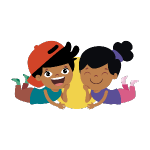

796,919


337,299
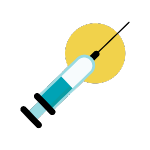

235,679


1,561


2,585
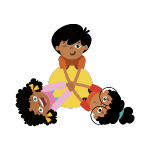

3,604


211,294


4,334
Our Impact
700,000 happy childhoods thanks to supporters like YOU!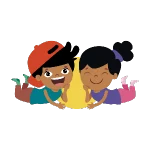

796,919


342,558
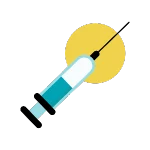

239,996


1,699
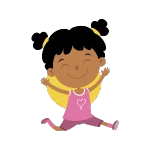

2,587
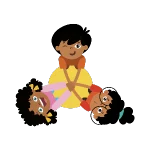

3,678
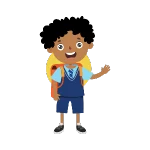

212,079


7,180
Our Impact
700,000 happy childhoods thanks to supporters like YOU!CRY America Grant Management
Project Selection
Project Funding
Capacity Building & Training
Community Organization & Effective Government Programs
CRY America’s Theory of Change
Monitoring, Evaluation & Auditing
Stories Of Hope
From Earning to Learning: Raju’s Journey
Breaking Poverty’s Submission Hold: How Sanjana Wrestled Toward Opportunity
Why Donate
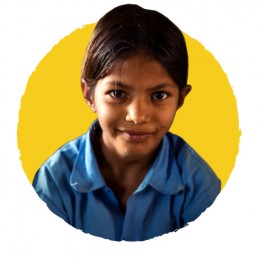

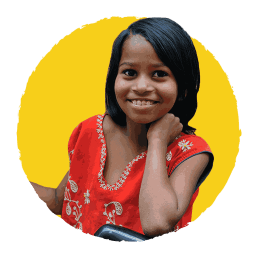

Issues
Statistics
recognized by governments and citizens alike.46 Million
33 Million
1 of 3
2 of 3
2 of 5
500%
15 Million
11 Million
2.9 Million
46 Million
33 Million
1 of 3
2 of 3
2.9 Million
2 of 5
500%
15 Million
11 Million
